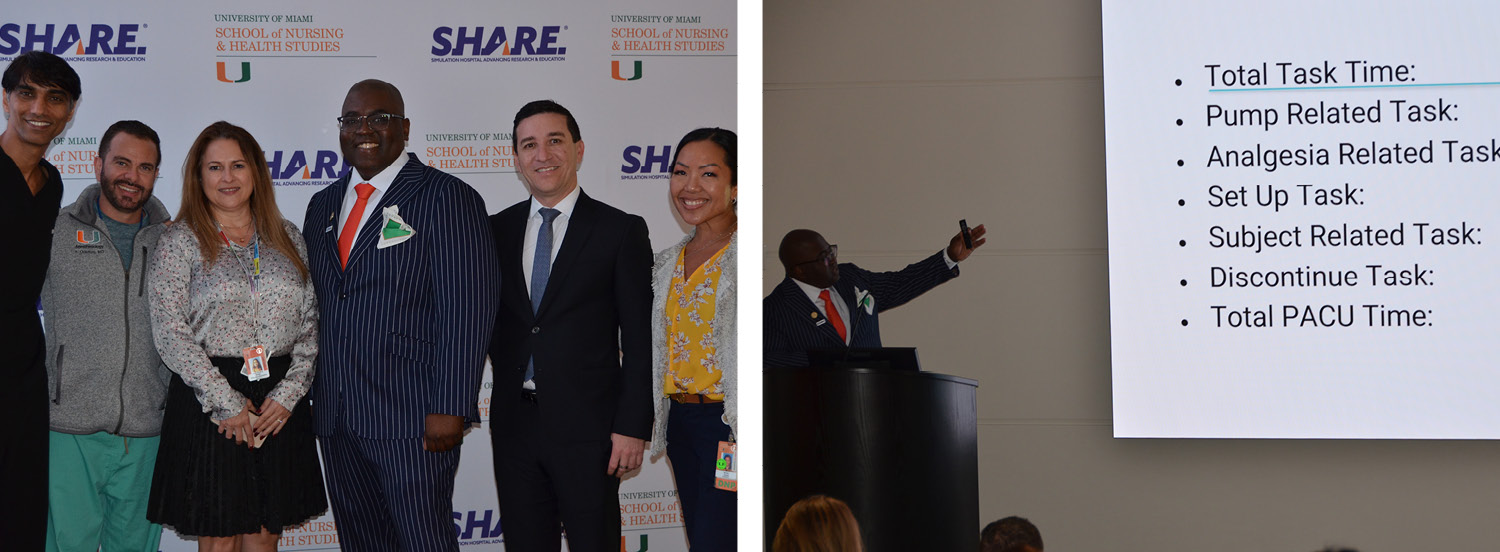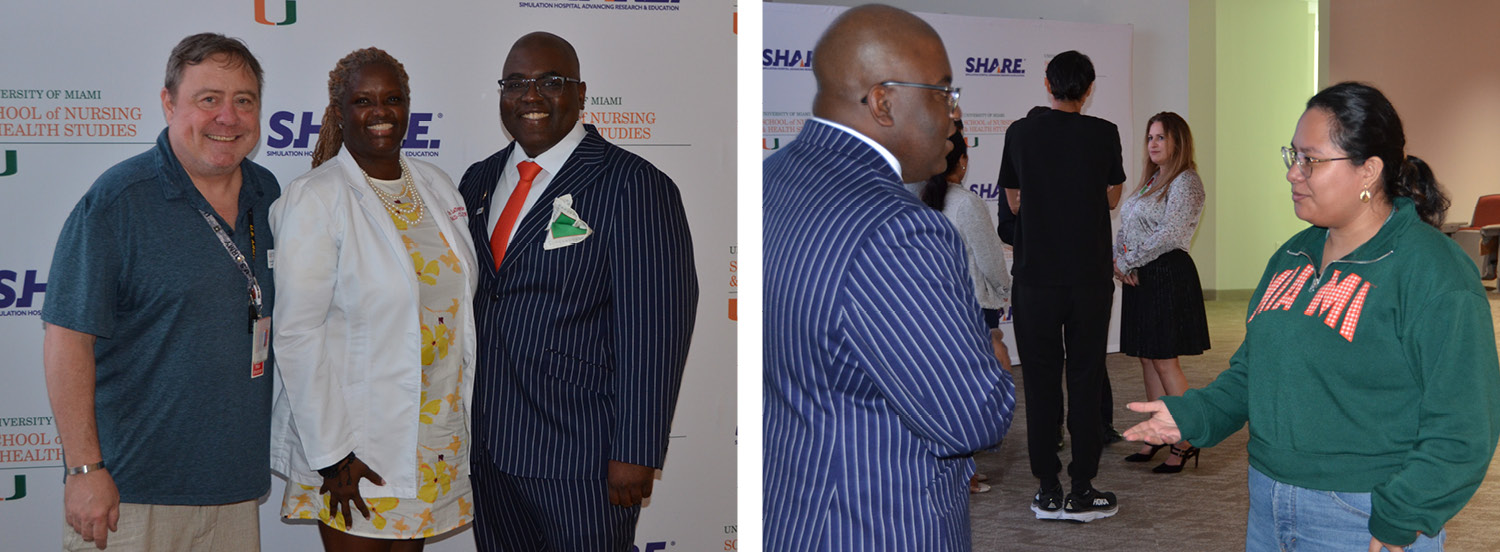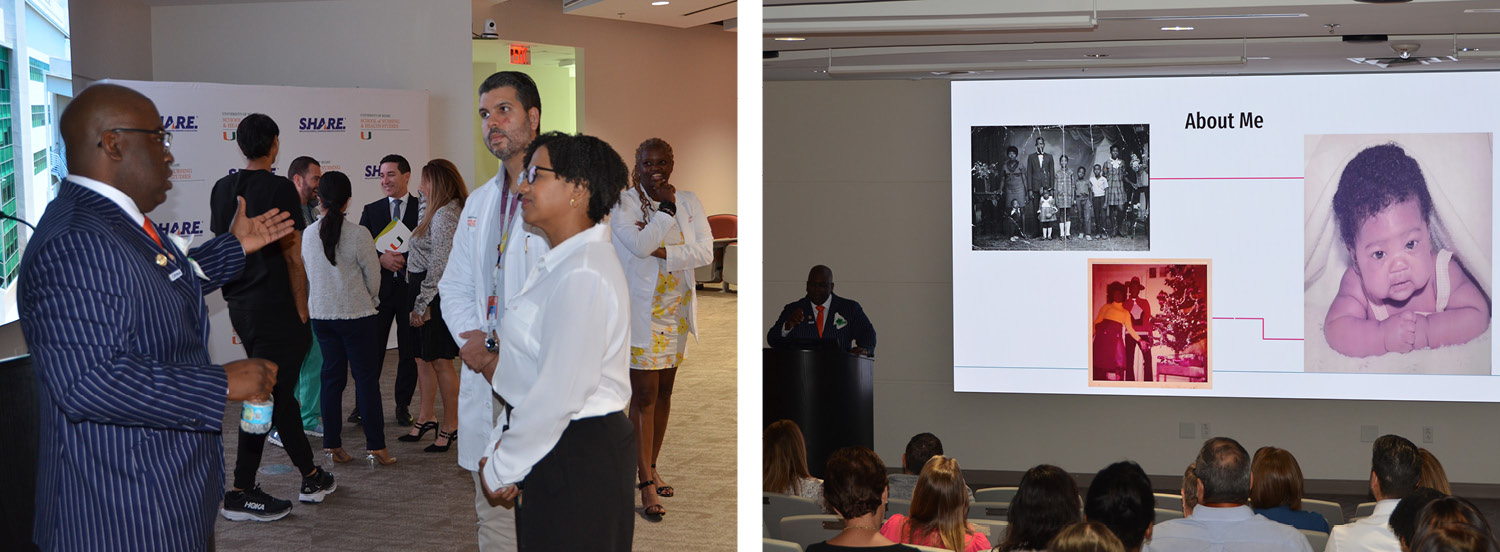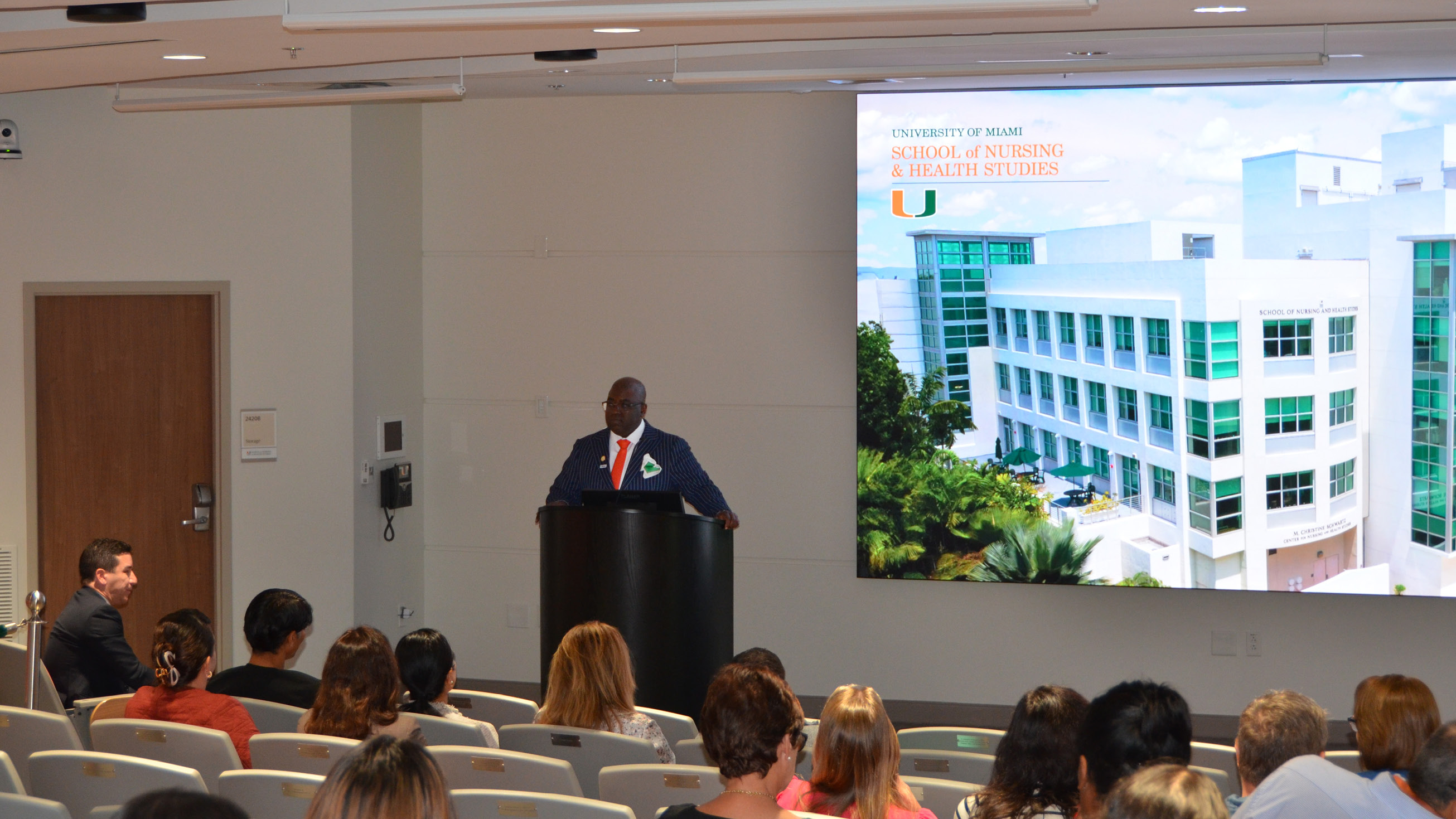This Veterans Day, Dean Hudson Santos introduced the University of Miami School of Nursing and Health Studies 2024 Fall Lecture Series, featuring distinguished guest speaker Jerrol B. Wallace, DNP, CRNA, FAANA, FAAN, a captain in the United States Navy with 31 years of active-duty service. “It’s nice to do something of service on Veterans Day,” said Captain Wallace, who is also a certified registered nurse anesthetist (CRNA) and educator. Before diving into his talk—"From Naval Officer to Nurse Scientist: An Academic Journey While Bridging the Gap Between the DNP and the PhD”—he asked all veterans in attendance to stand and be thanked for their service. He also clarified that his views were his own and did not represent his university, military, or other professional affiliations.
Wallace is the Commandant of the Graduate School of Nursing at the Uniformed Services University of the Health Sciences (USUHS) in Bethesda, the senior military leader and member of the Dean’s Cabinet and the Extended Leadership Team, and a Class of 2024 Fellow of the American Academy of Nursing. Through humor, humility, and honesty, he conveyed that there were struggles and uncertainly along his path to achievement.
The son of Jamaican immigrants, Wallace is a first-generation American from Jamaica Queens, New York, and the first in his family to graduate college. He recalled being an “average” high school student but said he worked full-time as an emergency medical technician (EMT) during high school, contributing to his household. Faced with a crossroads of going to college or staying an EMT, he said, “I didn’t really know what to do at that point.” But seeing the impact the military made on his cousin set Wallace in motion. “If this worked for him, maybe this can work for me,” he recalled thinking. “I didn’t know what I was going to do. I just knew it was going to be something medical. I did tell myself that I was not going to get out of the military until I had a better version of myself.”
Wallace joined the Navy as a hospital corpsman in 1993. His infant daughter was his next turning point. “I remember looking down at her, and I said, ‘I need to do better for her… I need to be a positive example for her when she gets older.’”
Wallace advanced from enlisted to commissioned military service. He earned a Bachelor of Science in Nursing degree from Norfolk State University, followed by an MSN degree from USUHS. Wallace said he was among the first four Black people in the Navy's CRNA program, “so we really didn’t have many role models when we went through the program. It was a big something when we graduated.” This only motivated him further. “I knew because I did not have a good representation of leaders for me when I went to school that I wanted to be one of those leaders,” he explained. Next came a Doctorate of Nursing Practice degree from Duke University.
Wallace was inducted into the inaugural class of fellows of the American Association of Nurse Anesthesiology. “Because of how important advocacy is,” he said, “I decided to get involved with my state organization. Once I did, I ended up becoming president of the Virginia Association of Nurse Anesthetists.” With that group of over 1,600 CRNAs, he lobbied for independent practice for nurse anesthetists in Virginia.
Wallace, a committed role model, mentor, and advocate, summarized his leadership philosophy as "transparency, relatability/replaceability, innovation, collaborative, and education," or TRICE. He argues that being replaceable is a positive, not a negative. “The minute you get into a position, you need to start looking for your replacement," he said. "That doesn’t mean you’re trying to get fired. You start grooming people… I want to make sure I leave the Navy better than when I came in.”
For Wallace that also means helping to increase diversity in programs he leads. “I’ve had students come up to me and say, ‘thank you for doing what you do,’ and ‘because I knew you were here, I was comfortable coming here,’” he said. On the world stage, he has led emergency response and training missions from Iraq and Uganda to Japan. At home, he led medical missions in New York after the 9/11 terrorist attacks and in Maryland at the height of the COVID-19 pandemic.
Currently Wallace is in the dissertation phase of his Ph.D. program at the University of Arizona College of Nursing, focused on studying “Relationships of Fibromyalgia Intensity, Self-Stigma, and Symptom Invalidation to Trust in the Provider and Perceived Patient-Centeredness.” “We have to be lifelong learners,” he said. “Education and technology are going to continue to move forward. If you’re not up to date, it’s going to be an issue. Students will surpass you.”
The lecture resonated for many in the audience, including second-year D.N.P. student Amanda Logsdon, a US Army veteran who was stationed in Germany, Iraq, and Oklahoma, among other places, as well as Hawaii, where she earned her nursing degree. Like Wallace, she hopes to balance her nursing career with a return to military service after graduation and maybe eventually earn her PhD in nursing as well. She said she chose the nurse anesthesia program here in Miami because it offered her the chance to start clinicals earlier than others she considered. The school's lecture series will continue in Spring 2025.



